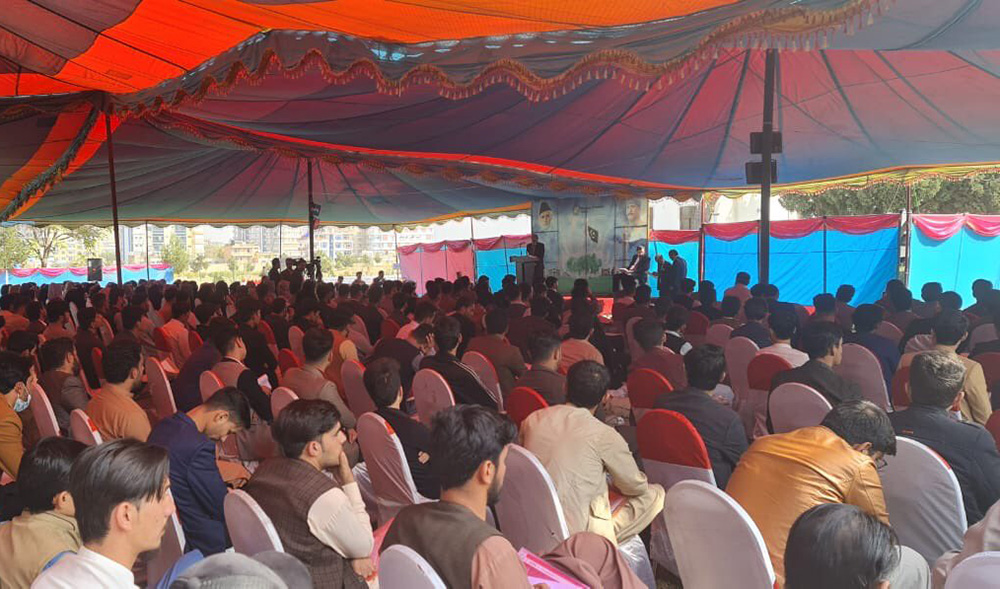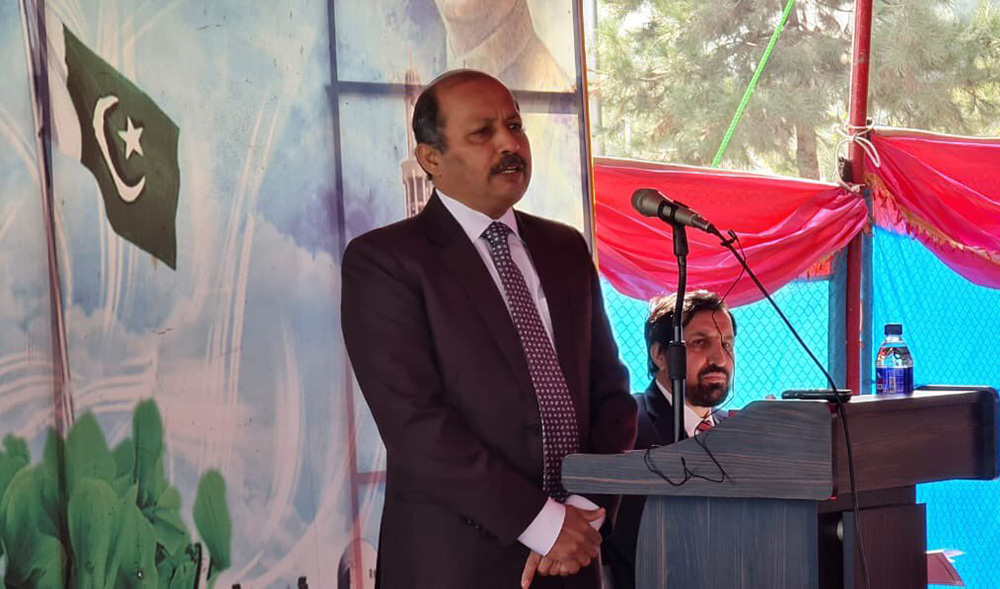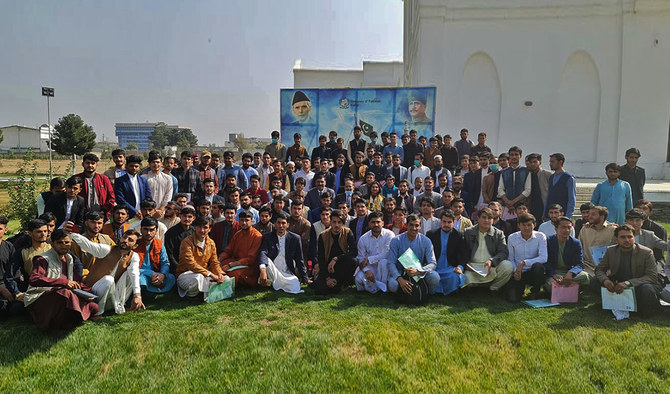PESHAWAR: Mohammed Umer Daudzai, Afghanistan’s special envoy for Pakistan, on Monday lauded a Pakistani scholarship for Afghan nationals, saying it would have a ‘positive impact’ on the bilateral relationship and on the lives of the people of Afghanistan.
According to Pakistan’s Higher Education Commission (HEC), over 16,000 Afghan students have applied for the Allama Muhammad Iqbal Scholarships in Pakistan, which offers 800 undergraduate, 150 Masters and 50 PhD grants.
The programme was launched in 2009, and 5,000 Afghans have so far benefited from it, gaining degrees in various fields including medicine and engineering. At least 100 seats are reserved for female students as part of the scholarship each year.
“The 800 scholarship this year that Pakistan has offered to Afghanistan is very important; it will have a very positive impact on bilateral relationships,” Daudzai told Arab News on Monday. “It will have a great impact on the life of people of Afghanistan because ... a significant number of these scholarships are in medicine and engineering which is very important for us.”
He added: “The Pakistani scholarship for Afghans is cheapest and most feasible because of the two countries' proximity. Afghan students can travel to their home country easily without involving huge expenses.”
He also urged the Pakistan government to increase the number of scholarships in medicine and engineering.
“We noticed that a significant number of the youths that participated in this year's scholarship are Afghan girls, which is important,” Daudzai said. “It’s indicative of the trust that families in Afghanistan have to send their daughters to Pakistan."

Afghan students attend a pre-orientation session at the Pakistan Embassy in Kabul, Afghanistan, on October 24, 2020 for the fully-funded Allama Muhammad Iqbal Scholarship program for academic year 2020-21. (Photo courtesy: Pakistan Embassy Kabul)
Pakistan’s Foreign Office Spokesperson Zahid Hafeez Chaudhri said the fully-funded Allama Muhammad Iqbal Scholarship Programme for Afghan Nationals was a “valuable” contribution to develop Afghanistan’s human resource sector.
“Pakistan has already contributed in the neighboring country’s development. And this (scholarship) programme will help develop Afghanistan’s human resource sector,” Chaudhri added.
Last week at the pre-orientation programme organized in honor of Afghan students at the Pakistan Embassy in Kabul, Pakistan’s Ambassador to Afghanistan Mansoor Ahmad Khan said more than 50,000 Afghans educated in Pakistan were now serving Afghanistan’s public and private sectors.

In this October 24, 2020 photo, Mansoor Ahmad Khan, Ambassador of Pakistan to Afghanistan, addresses a pre-orientation session for 800 Afghan students (not in photo) selected under the fully-funded Allama Muhammad Iqbal Scholarship program for academic year 2020-21. (Photo courtesy: Pak Embassy Kabul)
Farzana Sharifi, an Afghan female student at COMSATS University Abbottabad, told Arab News that many Afghan students were keen to study at Pakistani educational institutions because of the quality of the universities and low costs.
However, she said Pakistani institutions needed to start orientation classes to prepare Afghans better to speak and understand Urdu and English.
“Special orientation classes need to be arranged for newcomers so they become familiar with the language of the medium of the particular university,” Sharifi said. “In addition, our students should be given special incentives while crossing the border or traveling in Pakistan.”
Ahmad Milad Azizi, a networking officer at the Ministry of Communications and Information Technology in Kabul who graduated with bachelors degree in computer science from a Pakistani university in 2015, said the scholarship programme for Afghan students was also a great opportunity for Afghans to learn about Pakistani culture.
“Islamabad needs to explore measures to ease students’ travel from and to Pakistan,” he added. “I suggest the government of Pakistan increase the number of scholarships because our country direly needs qualified manpower and professionals.”


















